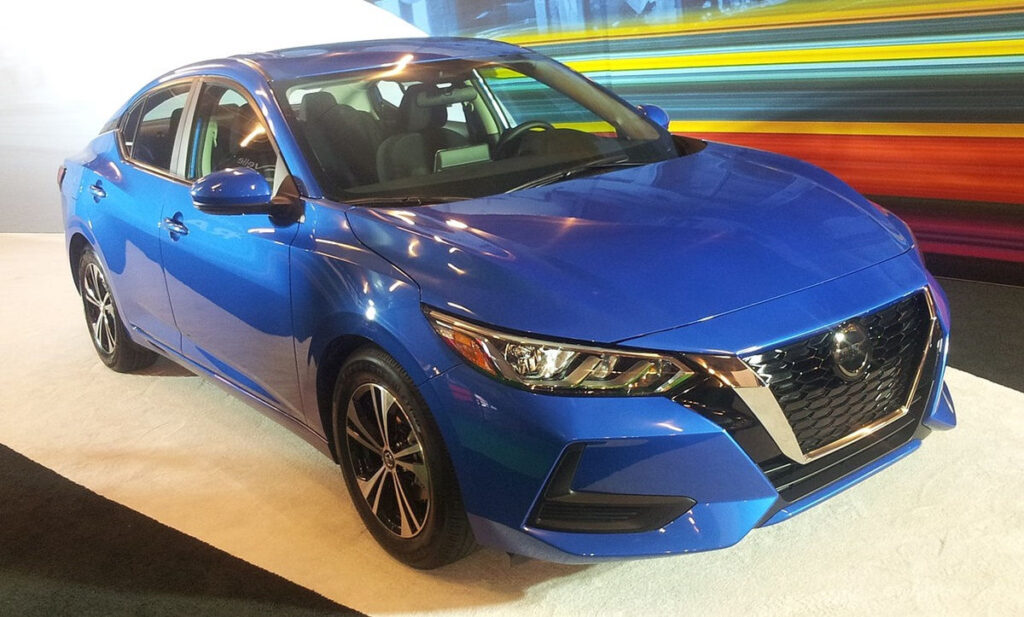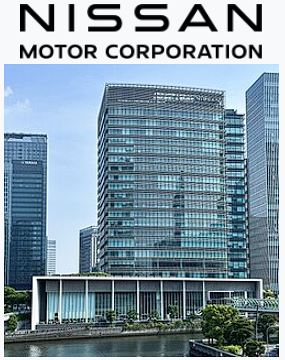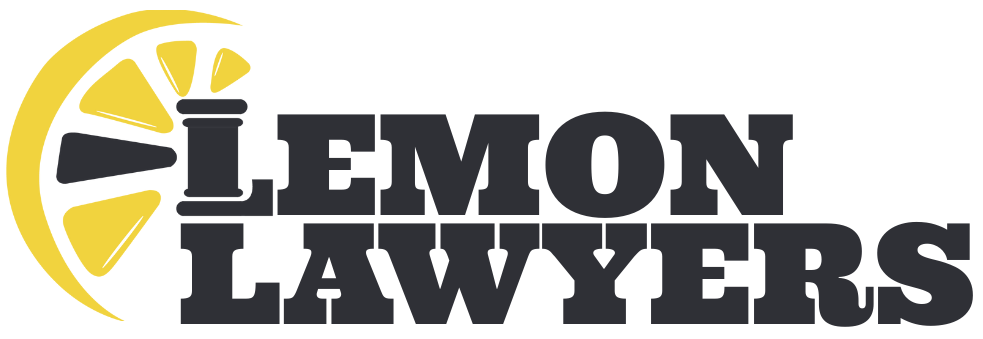Nissan has long been praised for its reputation as one of the most reliable vehicle manufacturers. Unfortunately, recent years have revealed that this reputation may not be entirely justified. One recurring problem that has come to light is the widespread failure of Nissan’s CVT (Continuously Variable Transmission), which has become a major concern for Nissan owners.
Given the prevalence of issues not only with Nissan but also with other manufacturers, it is crucial for consumers to have safeguards against the burdens of owning defective cars, commonly known as lemons. This is where the Nissan lemon law buyback and other alternative solutions under the California Lemon Law come into play.
In this article, we will explore the Nissan lemon law buyback process and delve into the common problems faced by car owners who own vehicles from this particular manufacturer. So, let’s get into the specifics.
What is the Nissan Lemon Law Buyback Settlement Option?
A buyback or repurchase, as provided by the California Lemon Law (under the Song-Beverly Consumer Warranty Act), is designed to compensate you for any expenses associated with the purchase or lease of a defective Nissan vehicle. This compensation covers the total cost of purchase and other expenses related to it.
Essentially, the Nissan Lemon Law buyback settlement option means that the company purchases the vehicle back from the customer and offers a settlement amount that covers:
- The full amount you paid for the vehicle.
- Any sales and financing charges incurred.
- Vehicle registration fees.
- Monthly amortizations made.
- Future monthly payments.
- Repair-related cash payments.
- Incidental expenses for towing fees and car rental fees.
A settlement option for buyback or repurchase under the California Lemon Law can be achieved by:
- Direct negotiations with Nissan.
- A court ruling.
- An arbitration ruling.
In the next sections, we will discuss the buyback process and the requirements for eligibility in order to receive compensation through this option. To clarify this topic further, we recommend watching the video below which provides additional information on this Lemon Law settlement option:
How Does The Nissan Buyback Program Work?
Under the Nissan buyback program, the auto manufacturer repurchases or buys back vehicles that have been purchased or leased and are determined to be defective. This settlement option extends to both new and used Nissan vehicles, provided that the defects or issues occurred within the vehicle’s original warranty period.
In order to qualify for compensation under the California Lemon Law, your defective vehicle must have substantial defects or issues that significantly impair its use, functionality, safety, and resale value. Additionally, it is necessary for Nissan to have been aware of these defects, been given an opportunity to repair them, and failed to resolve them despite several attempts.
In the upcoming section, we will delve into the details of how your vehicle can qualify as a lemon and thus become eligible for compensation.
Does Your Car Meet the Criteria for a Possible Nissan Lemon Law Buyback?
Not all defective Nissan vehicles are eligible for compensation under California Lemon Law. In order for your Nissan to be considered a lemon, it must meet one of the following criteria:
- The vehicle has been taken back to the Nissan dealership for repairs on at least two occasions for a significant safety defect.
- The vehicle has been taken to the dealership for repairs on at least four occasions for non-safety defects or issues.
- The vehicle has been held at the Nissan dealership for repairs for a cumulative total of over 30 days, related to a combination of defects.
According to the law, if any of these conditions are met within the first 18 months or 18,000 miles, the car is automatically presumed to be a lemon. This concept is commonly referred to as the Legal Presumption of Lemon Law.
In the scenario where the car problems arise after the initial 18 months or 18,000 miles, your vehicle could still qualify for a buyback settlement. This is possible if the ongoing defects or issues originated within the vehicle’s warranty period, which is usually 3 years or 36,000 miles for the basic bumper-to-bumper warranty or approximately 5 years for the powertrain warranty. For more information, please refer to the official Nissan Vehicle Warranty page.
To increase the chances of a successful lemon law case, it is crucial to notify the manufacturers promptly once the initial issue with your vehicle is noticed. This is vital because the longer you wait before taking your vehicle in for its first repair, the smaller the potential settlement becomes. This is because they can deduct the duration you have been driving a fully functional car from the final settlement amount.
Frequent Complaints With Nissan Vehicles
Though Nissan is widely regarded as a favorite among car owners, it is not immune to a significant number of complaints. These complaints have been thoroughly documented and pertain to a wide spectrum of defects found across various Nissan makes and models.
Here are some commonly reported complaints among Nissan vehicle owners:
- Engine overheating
- Suspension issues
- Defective seat belts
- Excessive oil consumption
- Transmission slippage/jerking
- Electrical issues
- Camshaft sensor recall
- Check engine light
- Rust in floorboards
- Faulty airbags
- Fuel pump failure
- Steering system defects
- Defective sensors
Among the listed issues, the most frequently reported complaints revolve around the brakes and automatic transmission of Nissan vehicles. Regarding the brakes, the main concern is their inability to bring the car to an immediate stop, and in more severe cases, they may not bring the car to a complete stop at all.
With the automatic transmission, some owners have experienced delayed engagement or a lagging sensation. These transmission problems could potentially be linked to CVT malfunctions in Nissan vehicles.
Although some of these issues may initially seem minor, they can pose significant safety hazards. If you encounter any of these defects, it is essential to have your car inspected by a certified dealership. If your vehicle is still under warranty, you have the right to invoke the protection provided by the California lemon law.
Nissan Lemon Law Case Examples
Based on discussions and communications with our clients, we have assembled a compilation of genuine Lemon Law complaints submitted by Nissan vehicle owners in California. Below, we provide a few Nissan Lemon Law case examples involving various models and specific issues:
Shaky 2017 Nissan Murano With Transmission Issues
This 2017 Nissan Murano with continuing transmission problems and expired warranty could still qualify for compensation if repair issues started during the active warranty period.
2022 Nissan Sentra Spent More Time in the Shop Than on the Road
The owner of this 2022 Nissan Sentra with severe electrical issues that emerged in his first 1,000 miles regrets not having done his due diligence before purchasing a car. His car has been kept at the dealership for more than 3 months and he was told it would take another 3 months to get the parts needed to fix the vehicle.
Nissan Tech Recommends Lemon Law for Problematic 2022 Nissan Rogue
Technicians at a Nissan dealership couldn’t seem to fix the Check Engine Light problem on this 2022 Nissan Rogue after multiple visits, they actually told the owner to hire an attorney and file a Lemon Law claim.
2020 Nissan Versa Stunned by $1500 Settlement Offer
The owner of this 2020 Nissan Versa was told at the dealership that he just needs to live with his Check Engine Light problem and that his car wouldn’t qualify for Lemon Law compensation but then they offered him a ‘settlement’ of $1500 out of the blue.
Nissan Offered to Replace This 2020 Nissan Kicks
The owner of this 2020 Nissan Kicks have had a few close calls driving this car with severe transmission issues and acceleration problems. He didn’t want a replacement vehicle but then the dealership told him it was his only option.
2020 Nissan Sentra Plagued With Multiple Issues
This 2020 Nissan Sentra was bought as ‘certified pre-owned’ with only 3000 miles on it. Since then, the owner has taken the vehicle back to the dealership for a host of different issues–from excessive fuel consumption, to engine vibration and severe electrical problems.

Nissan Vehicle Recalls in Recent Years
Throughout the years, Nissan has encountered numerous instances where they needed to recall certain vehicle models. These recalls have been initiated due to a wide range of defects, including engine problems, brake failures, faulty electrical systems, and more. Notably, the Nissan CVT transmission problems have been particularly common. Many consumers wonder if Nissan has addressed and resolved this issue for current and future models.
One of the recent recalls concerns a significant defect that can lead to the engine shutting off while the vehicle is in ‘drive’. This issue has been identified in Nissan vehicles dating back to 2014, with the most affected models being the Rogue and Rogue Sport produced between 2014 and 2022.
According to Nissan, this problem is caused by jackknife keys with a folding feature that may not fully remain open. If the key is not entirely unfolded and the car is driven, the driver may accidentally touch the key fob, resulting in the engine shutting off. This can lead to a loss of power for the engine and brakes while the vehicle is in motion, potentially preventing the airbags from deploying correctly in the event of a collision.
As is customary with recalls, Nissan advises all owners of affected vehicles to promptly contact their dealership to arrange for the necessary repairs.
Affected Nissan Car Models
Which Nissan vehicle models are protected under the California Lemon Law? The Lemon Law in California covers the following Nissan models:
- Nissan GT-R (Coupe)
- Nissan 370 Z (Coupe / Roadster)
- Nissan Altima (Sedan)
- Nissan Maxima (Sedan)
- Nissan Sentra (Sedan)
- Nissan Versa (Sedan)
- Nissan LEAF (Hatchback)
- Nissan Frontier (Pickup)
- Nissan Titan (Pickup)
- Nissan Kicks (Crossover)
- Nissan Murano (Crossover)
- Nissan Rogue (Crossover)
- Nissan Pathfinder (SUV)
- Nissan Armada (SUV)
- Nissan NV Cargo (Van)
- Nissan NV Passenger (Van)
If you are a resident of California and own a Nissan vehicle (including any of the models mentioned above) that is experiencing defects while still covered by the manufacturer’s original warranty, you might have the right to receive compensation.
Our services extend to assisting owners of the specified Nissan models from model years 2019, 2020, 2021, 2022, 2023, and 2024 with their Lemon Law claims.
Exploring the Nissan Buyback Process: A Step-by-Step Guide
The procedure for a Nissan vehicle repurchase under the California Lemon Law is relatively simple. Typically, the Nissan buyback process involves the following steps:
Getting Your Car Repaired
According to the law, in any dispute involving the Lemon Law warranty, it is necessary for the manufacturer to have been notified of the issue and to have made a reasonable number of repair attempts on the vehicle. That’s why it is crucial to bring your car back to the dealership promptly whenever a problem arises.
Hiring a Lemon Law Attorney
As a consumer in California, you have the opportunity to pursue a Lemon Law claim and receive compensation for a faulty Nissan vehicle. You can opt to negotiate directly with the manufacturer, initiate legal proceedings, or enter into arbitration. Whichever method of claim you choose, your likelihood of success will significantly increase with the guidance and advocacy of a skilled and knowledgeable California Lemon Law attorney.
Building Up Your Case
With the assistance of your Lemon lawyer, you can determine which documents are crucial in substantiating your claim. Typically, these essential documents include your warranty papers, purchase or lease receipts, repair orders, repair invoices, financing documents, and so on.
Suing Nissan
Once all relevant documentary evidence has been gathered, your attorney will proceed with filing a case in court. Upon filing, Nissan will be held to a strict timeline to respond to your claim for compensation. No more run-arounds and endless waiting for their customer service reps to respond to your queries and follow-ups.
Obtaining a Settlement
Based on our experience with handling Lemon Law cases in California, we have found that in the majority of instances, the manufacturer chooses to settle the claim out of court. This decision is influenced by the manufacturer’s awareness that an attorney will not pursue a claim unless there is a strong foundation of evidence supporting it.
Litigating Your Case in Court
If, in the rare event, the settlement offer (such as buyback, cash compensation, or vehicle replacement) is unacceptable to you, your attorney is prepared to proceed with litigation in court. The goal is to secure a more favorable settlement for your defective Nissan.

Beyond the Nissan Lemon Law Buyback Option: Other Potential Settlement Solutions
In addition to the Nissan Buyback settlement resolution, there are two other alternatives offered by the auto manufacturer for compensating you for the defective vehicle: Vehicle Replacement and Cash-and-Keep Settlement.
Vehicle Replacement
Another potential resolution in a lemon law case involves the court ordering Nissan to replace the consumer’s vehicle with a brand new unit. Alternatively, Nissan may voluntarily offer to replace your vehicle as a settlement for your claim.
If you choose to accept this settlement option, it is essential to note that the replacement vehicle must be substantially identical to your original vehicle and carry the same warranties. Any add-on options or enhancements you purchased, like rust proofing or undercoating, should also be applied to the replacement vehicle.
Additionally, as part of this arrangement, Nissan is required to reimburse you for any consequential expenses resulting from the vehicle’s issues, such as out-of-pocket repair costs, towing fees, and car rental expenses.
Cash-and-Keep Settlement
If the defects or issues in your Nissan do not meet the requirements for it to qualify for a buyback, you still have the ability to file a claim for compensation. This applies to issues that may affect the vehicle’s resale value but do not present safety concerns or impede your ability to operate the vehicle. Examples of such defects include subpar paint jobs, engine noises, or irritating sounds from the sunroof.
In this scenario, the court may direct that Nissan pays you a specified amount of cash as compensation for the repair issues and any incidental expenses you may have encountered as a result. Additionally, you would be permitted to keep the vehicle.
Call a Nissan Lemon Law Attorney Today To Discuss Your Options
Unsure about your next steps? If you have a defective Nissan vehicle in California and are facing ongoing defects or issues covered by the warranty period, which Nissan has been unable to resolve despite multiple attempts, you may be eligible for compensation.
The solution is clear! Take the next step today by initiating the Lemon Law process with the assistance of a skilled California Lemon Law attorney. Your attorney will assess your claim, provide customized legal guidance, and guide you through the claims process.
And here’s the best part. Your attorney will offer all these services at no cost to you. Yes, you heard it right! You can have a first-rate attorney by your side without having to pay a penny. The reason is that Lemon Law attorneys in California work on a no win-no fee basis. This means that their legal fees are covered by the manufacturer as part of the settlement, and they only get paid if they win your case!
There’s no need to overthink this situation. It’s time to take action and secure the compensation you rightfully deserve. Remember, the law is in your favor, and you shouldn’t have to deal with a defective vehicle on your own.
ABOUT NISSAN
 Nissan Motor Co. Ltd. is a prominent Japanese multinational automobile manufacturer headquartered in Yokohama, Kanagawa Prefecture, Japan. Renowned for its Nissan and Infiniti brands, the company has been a part of the Renault-Nissan-Mitsubishi Alliance since 1999. This collaboration involves Nissan, Mitsubishi Motors of Japan, and Renault of France.
Nissan Motor Co. Ltd. is a prominent Japanese multinational automobile manufacturer headquartered in Yokohama, Kanagawa Prefecture, Japan. Renowned for its Nissan and Infiniti brands, the company has been a part of the Renault-Nissan-Mitsubishi Alliance since 1999. This collaboration involves Nissan, Mitsubishi Motors of Japan, and Renault of France.
As of 2017, Nissan held the position of the world’s sixth-largest automaker, ranking after Toyota, Volkswagen Group, Hyundai Motor Group, General Motors, and Ford. Additionally, in 2014, Nissan was the largest car manufacturer in North America. Notably, by April 2018, Nissan achieved the distinction of being the world’s largest manufacturer of electric vehicles (EV), with sales surpassing 320,000 units worldwide.
Within the United States, Nissan presently operates three manufacturing facilities. These locations can be found in Smyrna, Tennessee, Canton, Mississippi, and Decherd, Tennessee.
